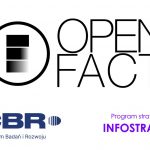
During the 28th International Conference on Knowledge-Based and Intelligent Information & Engineering Systems (KES 2024), Dr. Włodzimierz Lewoniewski presented a paper entitled “Exploring the Challenges and Potential of Generative AI: Insights from an Empirical Study” and a paper entitled “Supporting fact-checking process with IT tools”. The conference was held on September 11-13, 2024 in hybrid mode.








